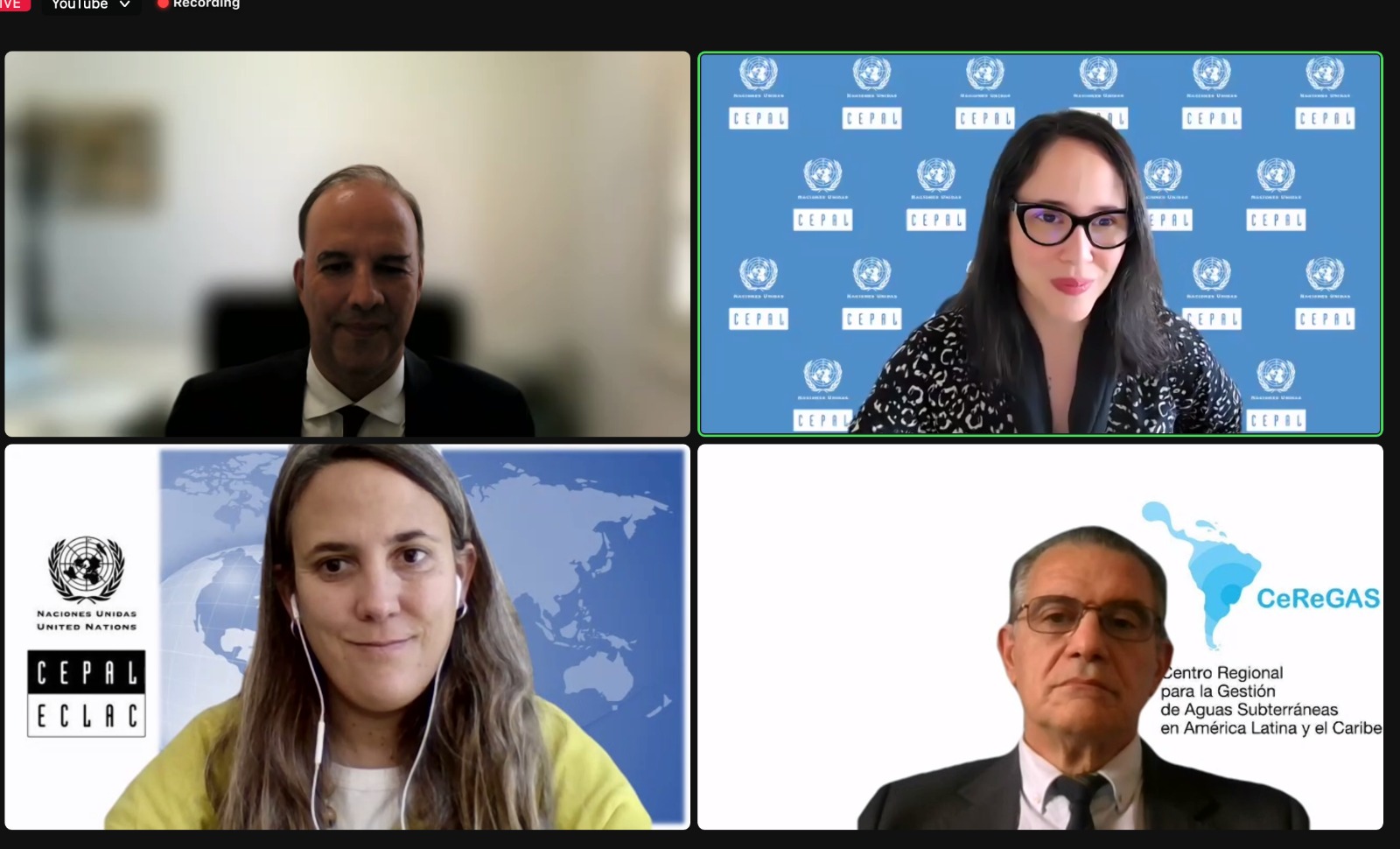ECLAC celebrates, together with PHI-UNESCO and CEREGAS, World Water Day 2022 under the theme: "Groundwater, making the invisible visible"
Work area(s)
Topic(s)
Teaser
In the virtual event, the United Nations World Report on the Development of Water Resources (WWDR) and the perspectives of Latin America and the Caribbean regarding the management of groundwater were presented.
Event information

Date
22 Mar 2022 - 10:10Event type
World Water Day was celebrated last Tuesday, the 22nd of March. World Water Day aims to raise awareness about the global water crisis and the need to seek measures to address it and move towards achieving Sustainable Development Goal No. 6: Water and sanitation for all by 2030. This year the focus revolved around groundwater, and during the event, the regional chapter of the 2022 Report was presented, developed by ECLAC in conjunction with CeReGAS and PHI-UNESCO, regarding the management of groundwater in Latin America and the Caribbean, a natural resource of vital importance, but which is often little known, undervalued or even ignored.
From ECLAC, Mrs Silvia Saravia Matus, economic affairs officer of the Water and Energy Unit of the Natural Resources Division, shared the main challenges in the region. She highlighted that groundwater represents close to 30% of the freshwater extracted in LAC, however, this figure can reach 65% in arid zones. Furthermore, considering that the region is experiencing strong population growth in the context of climate change, the dependence on the groundwater supply will undoubtedly increase in the coming years. Saravia Matus also emphasized the challenges of groundwater quality, which can be affected by anthropogenic contaminants, compounds of industrial origin or other emerging contaminants. Likewise, she indicated that all of the above represents a growing threat not only for the satisfaction of the demand and the health of the ecosystems but also for being a source of conflicts related to water, which in the region have already been quadrupled over the last decades.
To conclude, Saravia Matus summarized a proposal of technical and political recommendations concluded from the investigation. She highlighted the need to improve monitoring and information generation for good groundwater management and accelerate research and technical knowledge development. She stressed the importance of reinforcing existing institutions, developing and implementing frameworks that help guarantee the sustainable use of groundwater resources, and developing and strengthening legal, economic and social participation instruments.
In the following link the United Nations World Report on the Development of Water Resources (WWDR) can be consulted.